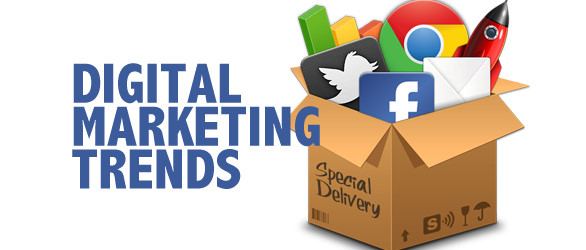I’ve seen trends come and go in my time as digital marketer, but 2025 is shaping up to be a transformative year. Businesses that can adapt to the latest developments will be well-positioned to engage their audiences and drive results. Let’s talk about five key digital marketing trends that I believe will redefine the field this year and how you can use them to your advantage.
AI-Powered Personalization
Artificial intelligence is much more than just basic automation, it’s become an indispensable tool for creating tailored customer experiences. Today, AI helps brands analyze huge amounts of data to predict consumer behavior and craft experiences that feel almost intuitive.
Take, for example, a retail client I worked with. By integrating AI into their email campaigns, we personalized product recommendations based on individual browsing habits. This shift resulted in a substantial increase in click-through rates and higher customer satisfaction. AI isn’t just about efficiency; it’s about delivering what customers want before they even know they want it.
However, the real success comes from blending AI-driven insights with a personal, human touch. While automation can streamline efforts, consumers still want genuine interaction and authenticity in their experiences.
Voice Search
Voice search has fundamentally changed how users interact with technology, and in 2025, it’s a trend that can’t be ignored. Devices like Alexa, Siri, and Google Assistant have made searching by voice a daily habit, and this shift demands a new approach to content creation.
In a recent project with a hospitality client, we revamped their FAQ section to focus on conversational phrases tailored to voice queries. Instead of standard keywords, we used questions like “What are the best family-friendly hotels in Orlando?” This adjustment led to a significant increase in organic traffic from voice searches, particularly for mobile users.
The rise of voice search also shows how important local SEO is. Most voice searches are location-based, so businesses that optimize for terms like “near me” or include precise, location-specific information will have the upper hand.
Social Commerce
In 2025, social media platforms have surpassed their original status as tools for brand awareness—they are fully functioning sales channels now. The integration of shopping features on Instagram, TikTok, and Facebook has made it easier than ever for users to move from discovery to purchase without leaving their feeds.
One of the most compelling aspects of social commerce is its ability to merge entertainment and shopping. A fitness apparel client I worked with created short-form TikTok videos demonstrating their products in action, from high-impact sports bras to durable running shoes. These posts, paired with direct links to purchase, led to a huge quarterly increase in sales.
For marketers, the key is creating content that feels natural and engaging within these platforms. It’s more about storytelling than hard selling. Audiences respond to authenticity and creative formats that integrate products seamlessly into their browsing experience.
Sustainability
Sustainability has become a non-negotiable priority for consumers, and in 2025, it’s changing how brands communicate their values. However, the focus has shifted from superficial claims to authentic, measurable actions. Consumers expect brands to back their sustainability messages with concrete practices.
For instance, a clothing retailer I worked with shared the journey of their eco-friendly materials—from sourcing organic cotton to reducing water usage during production. These stories resonated with their audience and boosted sales from environmentally conscious shoppers.
Successful sustainability marketing is built on transparency. Consumers are savvy enough to see through greenwashing, so brands need integrity when engaging with this trend. Small but meaningful actions—like switching to biodegradable packaging or partnering with eco-friendly suppliers—can make a significant impact when shared authentically.
Interactive Content
Interactive content is one of the most exciting trends in digital marketing. In an era where audience attention is fleeting, formats that encourage participation—like AR experiences, live streams, or gamified quizzes—are helping brands stand out.
In one campaign I oversaw for a lifestyle brand, we developed an augmented reality feature that allowed users to “try on” sunglasses virtually. This generated buzz but also increased engagement and conversions. Interactive tools create memorable experiences, giving consumers a reason to keep coming back to your brand.
Interactive content isn’t just a novelty—it’s a way to build deeper connections with your audience. Whether it’s through live Q&A sessions or personalized quizzes, these formats invite audiences to engage actively instead of just passively consuming content.
Staying Ahead in the Digital Marketing Landscape
Digital marketing in 2025 is all about meeting consumers where they are—whether it’s through personalized AI experiences, voice-friendly content, or sustainability-driven messaging. The trends outlined here reflect a larger shift toward creating more meaningful, authentic, and convenient interactions with your audience.
To thrive in this evolving landscape, businesses need to stay agile and proactive. Experiment with new formats, embrace emerging technologies, and stay attuned to the changing needs of your customers. By doing so, you’ll not only keep up with the trends but also set yourself apart as a forward-thinking leader in your industry.





